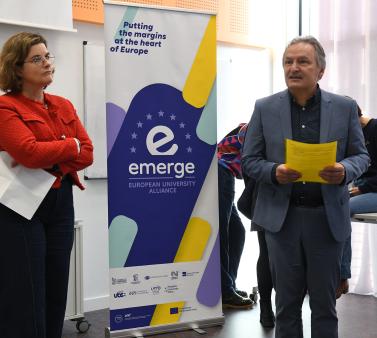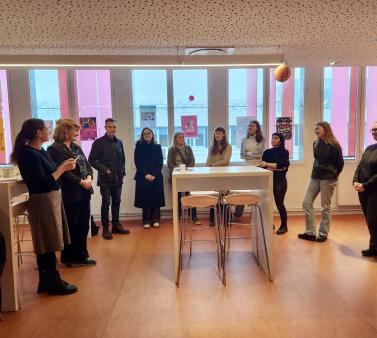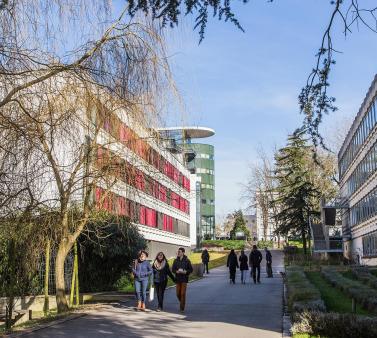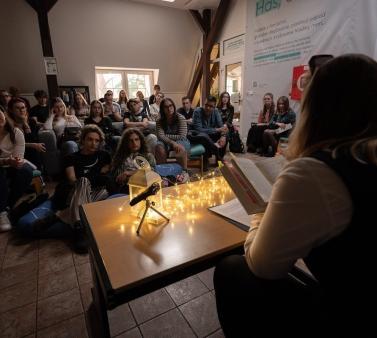
Could you briefly tell us about your academic and professional background, and what led you to specialize in the didactics of French as a Foreign Language?
I began my studies at the University of Recife, in northeastern Brazil, where my studies in Portuguese and French led me naturally to teaching Brazilian language and literature. Literature has always been my first passion. Through my studies, I explored the worlds of Latin American, Portuguese, Brazilian, and French writers, and these voices nurtured my curiosity about how language and imagination intertwine.
Later, I pursued a Master’s degree in literary theory at the Federal University of Pernambuco and a PhD at the University of Nantes, focusing on the poetry of Cécilia Meireles and exploring themes of time, life, and death. Part of my thesis also compared the poetic vocabulary of Paul Valéry and Cécilia Meireles.
Between 2009 and 2011, I taught Brazilian Portuguese as a foreign language at the École Supérieure d’Agronomie in Angers, France. I realized that my initial training, designed for native speakers, did not fully meet the requirements of teaching Portuguese as a foreign language. This led me to enroll in a professional Master’s program in French as a Foreign Language (FLE) at the Université Catholique de l’Ouest in Angers, which I completed in 2010. There, I studied the intercultural dimension of language learning, particularly through textbook analysis.
A course on contemporary literature had a profound impact on me. Reading texts by francophone authors, their life stories, and their relationship with the French language made me reflect on my own experiences. I felt as if each text read me in return, resonating with my personal journey and emotions. The essay “Est-on le même dans deux langues?” deeply moved me and reshaped my understanding of my own affective, social, and professional relationship with languages. These experiences inspired me to specialize in language didactics, particularly in literature, and eventually to become a teacher-researcher at the Federal University of Pernambuco.
What themes did you explore during your lecture series at Rennes 2?
I focused on the intercultural dimension of the relationship with the French language, especially among writers who were not born in France. Many people who learn and live with another language experience transformation, sometimes subtle, sometimes profound. Learning a language is not a process of fragmentation but an expansion of the self.
My work draws on my own experiences living between languages. Having spent ten years in France, obtaining French nationality, and studying both language and literature there, I experienced teaching and learning in an endolingual context with native instructors. All these experiences shaped my understanding of language, identity, and interculturality, which I shared with the Rennes 2 audience.
In your view, how does teaching French as a foreign language differ between Brazil and France?
The main difference lies in context. In Brazil, French is taught in an exolingual environment, where both students and teachers share Portuguese as their first language. At first, I taught as I had been taught in France. But I quickly realized that my students needed something different. They needed to see French not as an abstract system but as a living, human language connected to their own world.
Over time, I learned to adapt materials designed for native contexts to our Brazilian reality — integrating students’ own linguistic and cultural repertoires into the learning process. Teaching FLE in Brazil, therefore, means much more than transmitting grammatical structures or vocabulary lists. It involves building emotional and cultural bridges, helping learners construct a personal and meaningful relationship with the language. The intercultural dimension becomes the key that links cognitive, affective, and social learning.
Methods developed for learners in France need careful adaptation to meet the needs of learners outside a French-speaking environment.
Your research emphasizes intercultural studies and linguistic autobiographies. Why are these so important in language learning?
My life experience has shown me how formative and deeply personal learning a language can be. Immersing myself in French shaped not only my social trajectory but also my understanding of myself. When students read works by authors who live between languages — such as Nancy Huston, Agota Kristof, Wei Wei, or Brina Svit — they begin to see that French is not simply the language of France, but a space where multiple voices, perspectives, and cultural experiences coexist.
Likewise, when students reflect on and write about their own linguistic journeys, they gain insight into how languages shape identity, thought, and professional practice. This approach places human experience at the center of language learning, highlighting the interplay between personal history, emotion, and intercultural awareness.
What would you like students, teachers, and researchers to remember from your time at Rennes 2 and your collaboration with LIDILE?
I hope they remember that teaching is not only about transmitting knowledge; it is about how we relate to others, how we listen, and how we acknowledge the lived experiences of those learning a language. Experience in the classroom is essential for testing theory and refining practice.
I am deeply grateful to my colleagues at Rennes 2 — Elisabeth Richard, Christine Evain, Anne Prunet, Griselda Drouet and Clara Destais— for their generosity, intellectual rigor, and kindness. I also wish to thank the Federal University of Pernambuco for its support and commitment to academic excellence. This collaboration has been a source of inspiration and opens the door to future shared projects and ongoing intellectual exchange.




